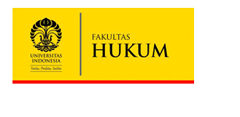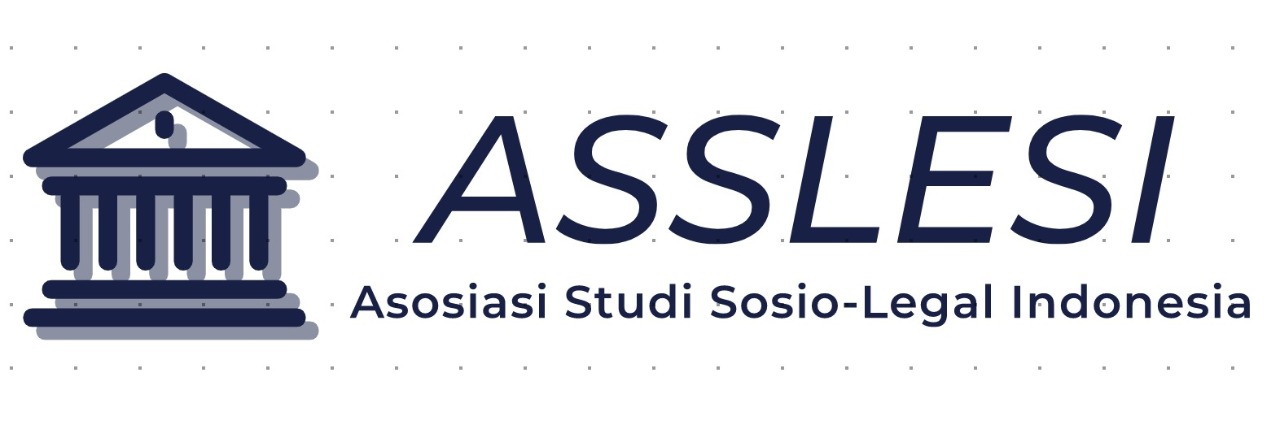Abstract
Abstract
Copyright infringement is known as the use of copyrighted works without the permission of the creators, copyright holders or authors. It is a form of dishonesty and a violation of the authors' economic and exclusive rights. In general, copyright infringement activities have taken place in various ways such as theft, piracy, reuse and plagiarism among students pursuing degree programmes in higher education institutions in Sri Lanka. In this backdrop, this study aims to examine awareness of copyright infringement among students pursuing undergraduate degree programmes at state universities in Sri Lanka. The primary and secondary data have been used in the study. The primary data were collected by Self-Administered Questionnaires (SAQ) distributed to 356 of the selected participants. Selected students are continuing their education in 2016/2017, 2017/2018, 2018/2019 and 2019/2020, including general and honours degree programmes. The samples were selected based on Random Sampling Method (RSM). All received questionnaires were analysed in a descriptive way with the help of SPSS (Version-26) and the results were presented by illustrating in the form of tables. According to the results, it was found that 58.1% of participants were not aware that copyright infringement as an academic dishonesty, as well as copyright law (Intellectual Property Act No.36 of 2003) which is enforced by Sri Lankan government in order to protect intellectual properties. 77.4% of the participants proved that copyright infringement is a kind of prohibited act in their own religion (Islam, Buddhism, Christianity and Hinduism). Moreover, the main factors that lead to copyright infringement of study samples were a lack of awareness of copyright law (38%), the high cost of textbooks (64.6%), and the fear of having low greats in semester examinations (77.4%). The findings of present study would be important to stimulate academics, library personnel, university officials, and policymakers to think of ways to prevent the students from engaging in copyright infringements in future. Moreover, it is a firm belief of the researchers that findings of this study could be a remarkable starting point for future researchers.
Bahasa Abstract
Pelanggaran hak cipta dikenal sebagai penggunaan karya berhak cipta tanpa izin dari pencipta, pemegang hak cipta atau penulis. Ini adalah bentuk ketidakjujuran dan pelanggaran hak ekonomi dan eksklusif penulis. Secara umum, kegiatan pelanggaran hak cipta telah terjadi dalam berbagai cara seperti pencurian, pembajakan dan plagiarisme di kalangan siswa mengejar program gelar di lembaga pendidikan tinggi di Sri Lanka. Dalam latar belakang ini, penelitian ini bertujuan untuk menguji kesadaran akan pelanggaran hak cipta di kalangan siswa yang mengejar program gelar sarjana di universitas negeri di Sri Lanka. Data primer dan sekunder telah digunakan dalam penelitian ini. Data primer dikumpulkan oleh Self-Administered Questionnaires (SAQ) yang didistribusikan kepada 356 peserta terpilih. Siswa terpilih melanjutkan pendidikan mereka pada tahun 2016/2017, 2017/2018, 2018/2019 dan 2019/2020, termasuk program gelar umum dan kehormatan. Sampel dipilih berdasarkan Random Sampling Method (RSM). Semua kuesioner yang diterima dianalisis secara deskriptif dengan bantuan SPSS (Versi-26) dan hasilnya disajikan dengan mengilustrasikan dalam bentuk tabel. Menurut hasil, ditemukan bahwa 58,1% peserta tidak menyadari bahwa pelanggaran hak cipta sebagai ketidakjujuran akademik, serta undang-undang hak cipta (Undang-Undang Kekayaan Intelektual No.36 tahun 2003) yang diberlakukan oleh pemerintah Sri Lanka untuk melindungi kekayaan intelektual. 77,4% dari peserta membuktikan bahwa pelanggaran hak cipta adalah semacam tindakan terlarang dalam agama mereka sendiri (Islam, Budha, Kristen dan Hindu). Selain itu, faktor utama yang menyebabkan pelanggaran hak cipta sampel penelitian adalah kurangnya kesadaran akan undang-undang hak cipta (38%), tingginya biaya buku teks (64,6%), dan ketakutan memiliki prestasi tinggi yang rendah dalam ujian semester (77,4%). Temuan penelitian ini akan menjadi penting untuk merangsang akademisi, personil perpustakaan, pejabat universitas, dan pembuat kebijakan untuk memikirkan cara-cara untuk mencegah siswa dari terlibat dalam pelanggaran hak cipta di masa depan. Selain itu, adalah keyakinan kuat para peneliti bahwa temuan penelitian ini bisa menjadi titik awal yang luar biasa bagi para peneliti masa depan.
References
Ahmadi, A., & Sonkar, S. K. 2015. "Awareness regarding plagiarism and fair use of copyrighted work: a survey amongst Doctoral Students of Babasaheb Bhimrao Ambedkar University, Lucknow." Journal of Information Management 2 (2): 98–110.
Akhtar, S. I., Fergusson, I. F., & Wong, L. 2020. "Intellectual Property Rights and International Trade." Congressional Research Service. Accessed from https://www.everycrsreport.com/reports/RL34292.html .
Cooray, L. J. 2003. "An introduction to the legal system of Sri Lanka." 2nd edition. Colombo: Lake House Investments.
Charbonneau, D. H., & Priehs, M. 2014. "Copyright awareness, partnerships, and training issues in academic libraries." The Journal of Academic Librarianship 40 (3-4): 228-233. Available at: http://digitalcommons.wayne.edu/slisfrp/123 .
Chiang, E., & Assane, D. 2002. "Software copyright infringement among college students." Applied Economics 34 (2): 157–166. https://doi.org/10.1080/000368400110034253 .
Christopher Eje OGAR and Kayode Gboyega OYENIRAN. "Intellectual Property and Fair Use in Higher Education." Research Journal of Library and Information Science 3 (1): 8-14.
Deazley, R. 2003. "The myth of copyright at common law." Cambridge Law Journal 62 (1): 106–133. https://doi.org/10.1017/S0008197303006251 .
DiValentino, Lisa. 2015. "Awareness and Perception of Copyright Among Teaching Faculty at Canadian Universities." FIMS Publications. Accessed from https://ir.lib.uwo.ca/fimspub/37 .
Emirzon, J., & Syaifuddin, M. 2021. "The comparison of legal damages for copyright & brand infringement among Indonesia China laws." JPH: Jurnal Pembaharuan Hukum 8 (3): 466–484.
Fernández-Molina, J. C., Martínez-Ávila, D., Chaves Guimarães, J. A., & Silva, E. G. 2022. "Copyright literacy and LIS education: analysis of its inclusion in the curricula of master’s degree programs." Heliyon 8 (1): 8–14. https://doi.org/10.1016/j.heliyon.2021.e08707 .
Fernando, R. 2022. "The Liability of Internet Service Providers for Copyright Infringement in Sri Lanka: A Comparative Analysis." Accessed from https://doi.org/10.2139/ssrn.4080952 .
Isiakpona, & Deborah, C. 2016. "Undergraduate Students’ Perception of Copyright Infringement: A Case Study of the University of Ibadan, Oyo State, Nigeria." Library Philosophy and Practice (e-Journal). Accessed from http://digitalcommons.unl.edu/libphilprac/689?utm_source=digitalcommons.unl.edu%2Flibphilprac%2F689&utm_medium=PDF&utm_campaign=PDFCoverPages .
Korletey, J. T., & Tettey, E. K. 2015. "An Investigation of copyright awareness at Kwame Nkrumah University of Science and Technology (KNUST)." International Journal of Sciences: Basic and Applied Research (IJSBAR) 20 (2): 390–404.
Kutni, D., & Murowi, A. 2022. "Intellectual Property Rights Legal Protection Towards Copyrights of New Creation Dance Choreography in Lampung." Indonesia Private Law Review 3 (1): 1–12. https://doi.org/10.25041/iplr.v3i1.2311 .
Lakhan, S., & Khurana, M. 2008. "Intellectual property, copyright, and fair use in education." Research Journal of Library and Information Science 6 (4): 8–14.
Landes, W., & Lichtman, D. 2003. "Indirect liability for copyright infringement: Napster and beyond." Journal of Economic Perspectives 17 (2): 113–124. https://doi.org/10.1257/089533003765888467 .
Lalitha, A., & AnjaneyaReddy.N.M. 2012. "Copyright law and the Academic Libraries: a perspective." Trends in Information Management (TRIM) 8 (2): 111-122.
Malkawi, B. H. 2013. "The Alliance Between Islamic Law and Intellectual Property: Structure and Practice." University of St. Thomas Law Journal, Vol 3(Issue 3). Accessed from https://ir.stthomas.edu/ustlj/vol10/iss3/4?utm_source=ir.stthomas.edu%2Fustlj%2Fvol10%2Fiss3%2F4&utm_medium=PDF&utm_campaign=PDFCoverPages .
Norman, J. 2021. "The Statute of Anne: The First Copyright Statute." HistoryofInformation.Com. Accessed from https://www.historyofinformation.com/detail.php?entryid=3389%0Ahttps://www.historyofinformation.com/detail.php?id=2955 .
Osarobu Emmanuel Igudia & Olayinka Adedapo Abioye. 2020. "Perception And Awareness Of Intellectual Property Rights By Undergraduates of Two Universities In South West, Nigeria." Global Scientific Journal 8 (7): 1596-1614.
Osman. 2010. "The scope of copyright law." Internet: http://cfl.eifl.net/cn/Module_3:_The_Scope_of_Copyright_Law , October 29.
Okiy, R. B. 2005. "Photocopying and the awareness of copyright in tertiary institutions in Nigeria." Interlending and Document Supply 33 (1): 49–52. https://doi.org/10.1108/02641610510582144 .
Okiy, R. B., et al. 2014. "Copyright Awareness in Academic Libraries." Heliyon 10 (1): 329–334. https://doi.org/10.1016/j.heliyon.2021.e08707 .
Padil, H. M., et al. 2020. "Awareness on Copyright among Students." July: 10–15.
Pangilinan, R. R. 2020. "Study on Copyright Awareness among College Students." International Journal of Knowledge Engineering 6 (1): 35–39. https://doi.org/10.18178/ijke.2020.6.1.129 .
Patry, W. 2003. "Essay the United States and International." PATRYG3R.DOC: 749–762.
Ranking, W. W. U. 2023. "Top Universities in Sri Lanka 2022-2023." Accessed from https://webometrics.info/en/Asia/SriLanka?sort=asc&order=Impact%20Rank%2A .
Rosniwati Nasir, Ponnusamy, V., & Lee, K. M. 2007. "Copyright Protection In The Digital Era: A Malaysian Perspective." Munich Personal RePEc Archive. Accessed from https://mpra.ub.uni-muenchen.de/8253/1/Copyright_in_the_Digital_Age.pdf .
Saujan, I., & Nafees, S. 2022. "Factors Lead To Copyright Infringements Among Undergraduates: a Study Based on State Universities in Sri Lanka." Journal of Islamic Law Review 18 (2): 157–172. https://www.researchgate.net/publication/368880367_ .
Saujan, I., Razick, A. S., Haniffa, M., & Nairoos, M. 2022. "Shari’ah Compliance of Copyright Act of Sri Lanka." International Journal of Arts, Humanities & Social Science 03 (07): 50–62. https://ijahss.net/paper/289 .
Small-Sample Techniques. 1960. "The NEA Research Bulletin, Vol. 38 (December), p. 99."
Sritharan, Krishnaveni, & Manickam, M. K. 2013. "Concept Paper on the Awareness of “Fair Dealing” Among Learners of Sunway College Johor, Johor Bahru." Accessed from http://digitalcommons.unl.edu/libphilprac/689?utm_source=digitalcommons.unl.edu%2Flibphilprac%2F689&utm_medium=PDF&utm_campaign=PDFCoverPages .
Situmeang, A. T., & A, T. K. D. 2021. "Legal Protection on the Moral Rights and Economic Rights of the Author of Film Script Writing Pursuant to Law No. 28 of 2014 Concerning Copyright (Analysis of Copyright Infringement Case by a Production House of the “Benyamin Biang Kerok” Film)." International Journal of Research and Review 8: 731–739. https://doi.org/10.52403/ijrr.20210896 .
Tella, A., & Oyeyemi, F. 2017. "Undergraduate students’ knowledge of copyright infringement." Brazilian Journal of Information Science: Research Trends 11 (2): 38–53. https://doi.org/10.36311/1981-1640.2017.v11n2.05.p38 .
Wanigasekera, A. 2015. "Enforcement of Intellectual Property Rights In Sri Lanka." Accessed from www.lawyerissue.com: https://lawyerissue.com/enforcement-of-intellectual-property-rights-in-sri-lanka/#:~:text=Civil%20action%20can%20be%20instituted,(7)%20of%20the%20Act .
Wongchun, P., & Weeks, B. 2020. "Attitude and behavior towards copyright violations by Rangsit University undergraduate students." RSU International Research Conference 2020, May: 1679–1687. https://rsucon.rsu.ac.th/proceedings.
Recommended Citation
Saujan, Iqbal Mr.
(2023)
"Awareness of Copyright Infringement Among Undergraduates of The State Universities in Sri Lanka,"
The Indonesian Journal of Socio-Legal Studies: Vol. 3:
No.
1, Article 3.
DOI: 10.54828/ijsls.2023v3n1.3
Available at:
https://scholarhub.ui.ac.id/ijsls/vol3/iss1/3


